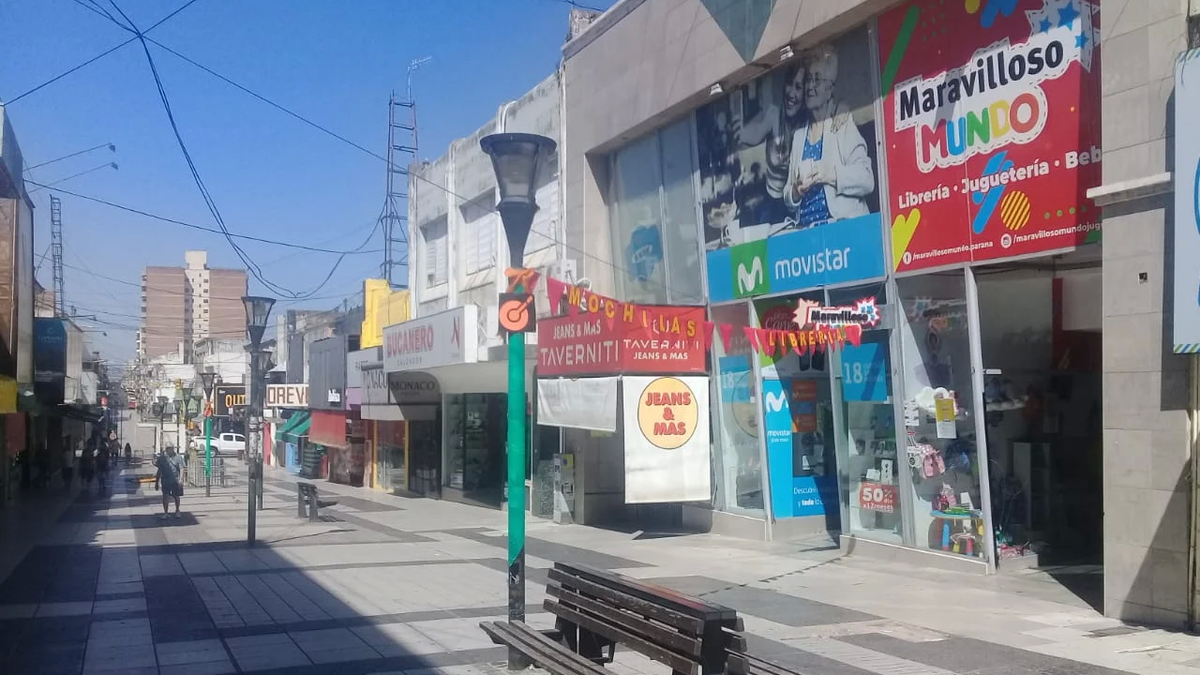The effects of the measures announced by the government of Uruguay last week, with the aim of facing the problem of the exchange rate difference and the price gap with Argentina in the border area and the negative consequences for trade and employment on the coast are already being felt in the neighboring city of Gualeguaychu, where sales have fallen due to the lower flow of Uruguayans.
The five measures announced by the government seem to be giving results in the border area, and the negative side, on this occasion, is carried by Argentina: during this week, Entre Ríos merchants have warned of the drop in Uruguayans. “Last Saturday it was kind of lazy, but since the week started, it’s been very calm. The most important sales are from Uruguayans, who buy in quantity and the highest-priced garments,” explained a merchant from Gualeguaychú to the Argentine outlet Máxima Online.
The abrupt drop in Uruguayan visitors is accompanied by smaller purchases by those who continue to cross the border. In the clothing sector, particularly, they are promoting a series of offers to recover what for them was an important source of sales: “We are seeing if we can have a greater movement because the Uruguayans have disappeared, now what they carry is very punctual.”
“Hopefully it happens soon, because since last year we have had another sale along the promenade that Uruguayans make here,” said a merchant from Gualeguaychú, in this regard.
Government measures
The new measures have been under light for almost a week, since the Executive Power announced the series of actions to try to alleviate the negative effect of the price gap in the border area, in response to the claims of the mayors of the coast.
The first initiative was expansion of the Border Law so that the provisions of the legal text reach about 10,000 taxpayers; while the possibility of exempt from fixed charges for water and electricity (SBI and joint venture), while the high cost of Uruguayan electricity is one of the factors that make production costs more expensive and make it impossible for coastal businesses to compete.
In addition, the discount on the Internal Specific Tax (Imesi) was extended to fuels at border service stations up to 40%; and joined the small pharmacies of Artigas, Colonia, Paysandú, Río Negro, Salto and Soriano to the “benefits for you” campaign of the Republic Bank (BROU)which means a 20% discount on purchases with the BROU Recompensa Mastercard card.
Finally, the last measure consisted of the subsidy to companies that operate in the border departments for the Employee recruitmentwithin the framework of the Groups in Vulnerable Situation Program of the Ministry of Labor and Social Security (MTSS).
Uruguay Border.jpg
The Chamber of Industries of Uruguay (CIU) calls for a zero kilo policy at the border.
Necessary but not sufficient
Beyond the fact that the measures were generally well received —and that, apparently, they are having good results— both industrialists and businessmen considered insufficient initiatives promoted by the government of Luis Lacalle Pou.
On one hand, the Chamber of Industries of Uruguay (CIU) He insisted on the need to apply a “zero kilo” policy to reduce smuggling that takes place in the border area and that affects the sales of one in three businesses and producers on the coast.
Also the Confederation of Business Chambers (CEE) He pointed out the “unfair practice” that involves competition with products that enter the commercial chain illegally, and requested more action in this regard, although he does not share the extremism of the industrialists. “We say no to zero kilos because we understand that this is a problem for the population of the border town. It does not seem bad to us that a person crosses to make an assortment on the other side to make ends meet,” he explained. Diego O’Neill, President of the CCE, in dialogue with Scope.com.
In this sense, the businessmen’s proposal is to “increase customs controls and inspection procedures, because there are places in any department where illegally entered products, smuggled products, are for sale publicly, and people are still so wild.”
Source: Ambito




